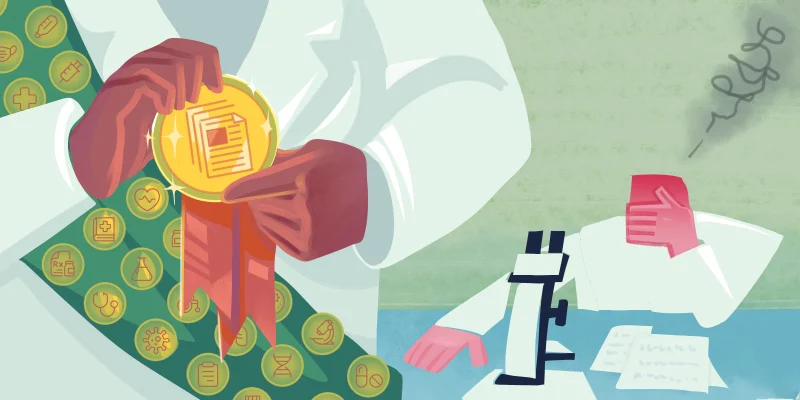She was 16 when she jumped from the third floor of a parking garage.
She survived. Barely.
Her body was shattered — pelvis, spine, legs, ribs — but she was alive. Stabilized by the trauma team. Operated on by orthopaedics. Monitored in the ICU. Once she was no longer critical, psychiatry evaluated her, and she was transferred to the pediatric service. That’s when I became one of her doctors.
At first, she said nothing. I rounded on her just as I did with all my patients. She kept her eyes fixed on the ceiling most days. Her answers were yes, no, or silence.
But slowly, almost imperceptibly, she let herself be seen. A glimmer of sarcasm here. A small smirk there. One day, I asked if she wanted to try a craft activity. She shrugged. That shrug was a win in my book.
After rounds, I started spending more time with her. Some days, we folded paper into lopsided animals. Well, mine were lopsided. She never failed to point that fact out. Some days we listened to music. We discussed her life before the fall: her family, her hobbies, and what she missed most.
We created a list of things she wanted to accomplish before her 18th birthday. Some were big: walk again, dance again. Others were heartbreakingly simple: sit on a beach, drink bubble tea, and dye her hair cotton candy pink.
But mostly, we did a lot of origami. I’m terrible at origami.
My cranes looked like crushed soda cans. She found that hilarious. Her fingers, despite the stiffness and pain, were patient and precise. One evening, after we sat quietly making stars out of colorful paper, she handed me a pen topped with an origami crane made of folded hospital paper and surgical tape.
“So you don’t forget your best origami student,” she said, smirking.
I will never forget.
She never told me why she jumped. I never asked. She needed someone who saw more than her injuries. Someone who treated her like a whole person, even before she could believe that herself.
That patient changed me.
In medical training, we’re trained to move fast. Fix, write the note, check the box. But no one teaches you how to sit quietly in a room with a patient who is hurting in ways no scan can show. No one teaches you that healing sometimes looks like folded paper, painting fingernails, and singing along to a Taylor Swift song during rounds.
Now, as a pediatrician, I carry those lessons with me. I slow down. I ask about hobbies, crushes, fears, and favorite snacks. I’ve learned that sometimes a one-word answer is actually an invitation to stay a little longer.
As a woman in medicine, I think about this often — how much it matters for girls to see someone like them in a white coat. Someone who can talk about “girl dinner” and chest tubes in the same breath. Someone who can hum Ariana Grande lyrics and discuss trauma protocols without missing a beat. Someone who takes their pain seriously and sees their personality, too.
Representation in medicine isn’t just about demographics. It’s about connection. It’s about helping young patients feel visible. And maybe, just maybe, helping them believe they are worth caring for fully, not just medically.
Every time I look at that origami pen, I remember that some of the most powerful work we do happens after rounds, when we stop being doctors and start being humans.
Have you had an experience with a patient that changed the way you approach clinical care? Share in the comments!
Dr. Tasia Isbell is a pediatrician at Boston Children's Hospital and Boston Medical Center. She enjoys cycling, traveling, and exploring the world through cuisine. She tweets at @DrTasiaIsbell. Dr. Isbell was a 2023–2024 Doximity Op-Med Fellow and continues as a 2024-2025 Doximity Op-Med Fellow.
Image by Tanya Little / Getty Images







